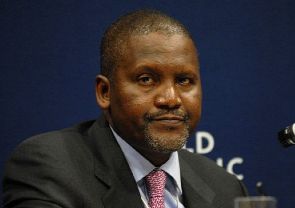The government must take a stronger second look at the Economic Partnership Agreement (EPA), a trade and development partnership between Ghana and the European Union, which was signed on an interim basis a year ago, Dr. Kofi Amoah, an economist and entrepreneur, has said.
Describing the agreement as another Bond of 1844, which officially commenced colonialism and gave economic, judicial and territorial authority of the then Gold Coast to the British, Dr. Amoah, strongly argued that government must review the agreement, because it is detrimental to the development of a Ghanaian-owned economy.
“Since independence, we have been dictated to by the International Monetary Fund (IMF) and the World Bank. How do you build your internal citizenship-owned economy when the thinking behind building that economy is being done by outsiders? We have made a lot of mistakes with these agreements we are signing.
These agreements, especially the EPA, reminds me of the Bond of 1844, we signed in Adanso Formena, which really gave the British the right over our economy and even the judicial authority over our people. And over a 100 years they controlled our economy and look at what we inherited from them.
I am not saying we should not sign agreements but we must be careful and make sure they are advantageous to us. In my opinion agreements like the EPA and World Trade Organisation (WTO) are not advantageous to us,” he said.
Speaking in an interview after the first plenary session of the two-day Ghana Economic Forum (GEF), organised by the B&FT in Accra on the topic, ‘A Ghanaian-owned Economy: 60 Years after Independence’, Dr. Amoah argued that the agreement poses an existential threat to creation of competitive businesses in the country.
The plenary session, which was on the topic, ‘Maintaining a stable macro-economy for sustained and inclusive growth’, saw academics, bankers, and corporate executives discuss how Ghana can sustain growth in the long term.
“I think these treaties pose existential threats for creating a Ghanaian-owned economy, we need to revisit it so that we do not make the same mistakes we did with the Bond of 1844,” he said.
Dr. Amoah, who is also the Chairman of PVI Group Inc., a conglomerate of businesses in finance, real estate, and others, touched on the example of how China became the second largest economy in the world by developing internally before opening up to the rest of the world.
“China didn’t join the WTO when it knew that it could not compete. As soon as it realised that it has built enough internal strength to compete, it opened its doors and the Chinese now, through exports have created the second largest economy in the world.
They took their time, built their internal strength and then opened up and I think we should do the same thing,” he added.
To him, trade should serve to strengthen any economy and not suppress because no country or economy can be competent in all things. “This Economic Partnership Agreement (EPA) means that Europe is going to have 70 percent access into our economy and we have a 100 percent access into our economy.
But the question is: what do we have to produce in Ghana that will be competitive with European companies? Secondly, inside Ghana, how strong are our companies to be able to compete with the European companies that seek to sell in our market?
The strength of our local companies hasn’t really been built to a point where we can compete. One day we will, but do not go and sign an agreement that based on your internal strength, you are going to lose,” he added.
Since Ghana opened conversations with the EU on the EPA a decade ago, civil society groups, including the Economic Justice Network, a body comprising the Christian Council, Trade Union Congress and others have petitioned the government not to sign the agreement because it would lead to the total collapse of Ghanaian industries.
Ghana is expected to lose US$300million in revenue should the EPA come into full force, even with a 100percent access to the European market except for rice and sugar, whiles EU counties will have 80percent access to the Ghanaian market duty free and quota free.








